 ICRH Global Newsletter ICRH Global Newsletter 29th of May, 2019 |
Message from the Chair Prof. Dr. Marleen Temmerman
“ We should not accept reversal of the gains we made” said HE Margaret Kenyatta at the opening of the 72nd World Health Assembly in Geneva this month, and as an advocate for women’s health in Kenya, she talks from the heart, and with a lot of wisdom. Indeed, a lot of gains have been made in the area of women and girl’s health and rights over the last 2 decades. Later this year in Nairobi, the world celebrates the 25th anniversary of the 1994 ICPD Cairo Conference, the birth of the ‘Reproductive Rights’ concept, and there is reason to celebrate in most parts of the world. However, there is also more and more pushback. Think of the abortion ban in Alabama, or the removal of 'sexual health' references from the UN resolution on sexual violence. Extreme right-wing political parties seem to be convincing more and more voters, also in Belgium, that could potentially change national positions on sexual and reproductive health and rights. We should not accept this reversal, as the first lady said, and keep fighting for women’s rights all We should not accept reversal of the gains we made” said HE Margaret Kenyatta at the opening of the 72nd World Health Assembly in Geneva this month, and as an advocate for women’s health in Kenya, she talks from the heart, and with a lot of wisdom. Indeed, a lot of gains have been made in the area of women and girl’s health and rights over the last 2 decades. Later this year in Nairobi, the world celebrates the 25th anniversary of the 1994 ICPD Cairo Conference, the birth of the ‘Reproductive Rights’ concept, and there is reason to celebrate in most parts of the world. However, there is also more and more pushback. Think of the abortion ban in Alabama, or the removal of 'sexual health' references from the UN resolution on sexual violence. Extreme right-wing political parties seem to be convincing more and more voters, also in Belgium, that could potentially change national positions on sexual and reproductive health and rights. We should not accept this reversal, as the first lady said, and keep fighting for women’s rights all
over the world. Now more than ever! |
| EVENTS |
ICRH-Belgium participates in the Pink March
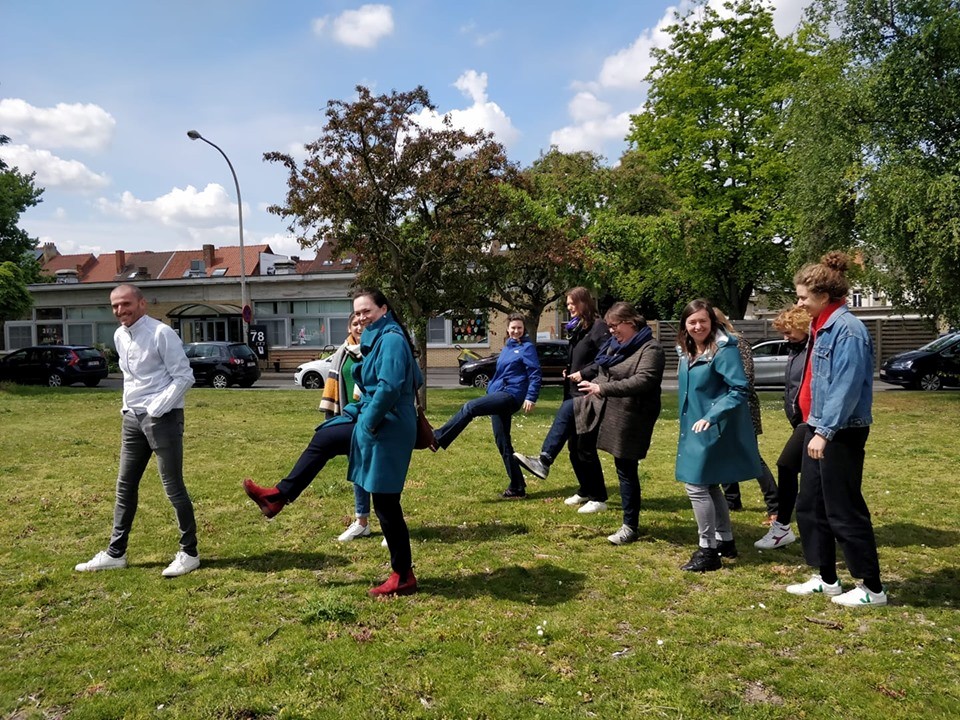 During the month of May the ICRH-Belgium team participates in the Pink March, which includes a 30 minutes extra walk every day, because walking can contribute to the prevention of cancer. “A healthy lifestyle and especially physical exercise make it possible to avoid one cancer in three” Pink Ribbon emphasized. It is as simple as getting of the bus early, using the stairs, walking your dog more often…. A small change in your lifestyle but a big step in the right direction for your health! During the month of May the ICRH-Belgium team participates in the Pink March, which includes a 30 minutes extra walk every day, because walking can contribute to the prevention of cancer. “A healthy lifestyle and especially physical exercise make it possible to avoid one cancer in three” Pink Ribbon emphasized. It is as simple as getting of the bus early, using the stairs, walking your dog more often…. A small change in your lifestyle but a big step in the right direction for your health! |
ICRH-Kenya at the Maisha HIV &AIDS conference 2019
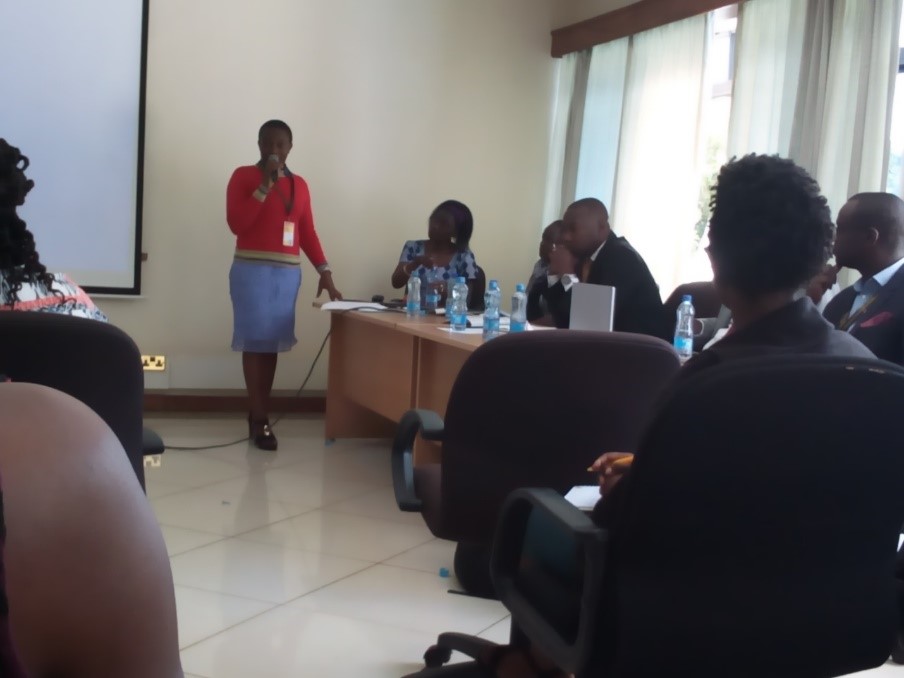 ICRH-Kenya clinical Officer Dorothy Mbeta was invited to speak as a panelist in a session on oral pre-exposure prophylaxis (PrEP). The theme of the conference was: “leveraging the HIV response to accelerate impact for Universal Health Coverage”. Dorothy works as a clinician at Likoni Drop-in-Centre, one of seven ICRHK-supported centers that provides HIV services to female sex workers and men who have sex with men. Dorothy is an outstanding clinician and provided insights on how she has maintained PrEP clients on near-perfect continuation rates. ICRH-Kenya clinical Officer Dorothy Mbeta was invited to speak as a panelist in a session on oral pre-exposure prophylaxis (PrEP). The theme of the conference was: “leveraging the HIV response to accelerate impact for Universal Health Coverage”. Dorothy works as a clinician at Likoni Drop-in-Centre, one of seven ICRHK-supported centers that provides HIV services to female sex workers and men who have sex with men. Dorothy is an outstanding clinician and provided insights on how she has maintained PrEP clients on near-perfect continuation rates. |
The Mombasa Journal club hosted by ICRH-Kenya
 The Mombasa research group journal club is held once a month, and was initiated jointly by ICRH, Aga Khan University Mombasa Research Office, and University of Washington, Mombasa. Journal clubs aim to improve research capacity among junior investigators and promote collaboration among the institutions. This month the journal club was hosted by ICRH-Kenya. The Mombasa research group journal club is held once a month, and was initiated jointly by ICRH, Aga Khan University Mombasa Research Office, and University of Washington, Mombasa. Journal clubs aim to improve research capacity among junior investigators and promote collaboration among the institutions. This month the journal club was hosted by ICRH-Kenya.
Researchers from ICRH-Kenya, Aga Khan University, University of Washington, Mombasa Research Office and Kwale County Research Department (32 in total) attended this month’s journal club. Young researchers made presentations on ongoing research and received support and mentorship from senior colleagues.
|
Harnessing renewable and efficient energy to create stronger health systems in Africa
Th e United Nations Foundation hosted a conference on the impact of weak energy supplies for delivering good health care services and how clean energy could help in creating stronger and more resilient health systems in Africa. e United Nations Foundation hosted a conference on the impact of weak energy supplies for delivering good health care services and how clean energy could help in creating stronger and more resilient health systems in Africa.
A long list of key stakeholders in the energy and health sector joint the UN Conference on Clean Energy for Health Care in Nairobi on the 24th and the 25th of April to reflect on the intersection between the two topics and how to work together to overcome the challenges they both face.
The capacity of Africa’s health systems to deliver adequate care is hugely hampered by the continent’s lack of access to electricity. It leads to vaccine spoilage, interruptions in the use of essential medical and diagnostic devices, and lack of even the most basic lighting and communications for maternal delivery and emergency procedures. It also limits the hours of operation and retention of rural health workers and undermines the provision of adequate water, sanitation, and hygiene.
The conference brought together partners to raise awareness, exchange knowledge and build a coalition around the issue. Prof dr Marleen Temmerman, Aga Khan University and ICRH Global, was one of the speakers, looking at it from a medical professional and a patient centred perspective. |
ICRH Mozambique participates in the National Family Planning Meeting, Maputo, May 7-9, 2019
with the slogan: Family Planning is not just contraception, it is a choice and decision for a prosperous future”.
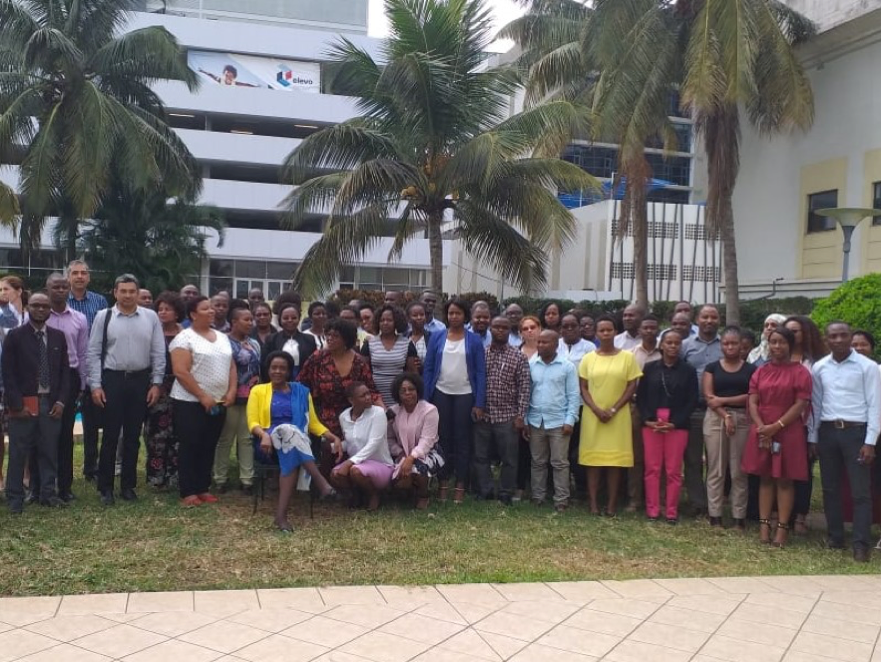 The objective of this event was to evaluate the performance of the national family planning programme in 2018, and consolidate strategies for accelerating progress towards the goal of 34% contraception prevalence by 2020. Issues discussed included expanding provision of Sayana Press in Mozambique, increasing uptake of LARCs (longer-acting reversible contraceptives), introduction of generic contraceptives, and maintaining family planning services in emergency situations such as the recent cyclone in Sofala province. Challenges identified included continued predominance of shorter-acting methods; limited integration of family planning in post-partum and post-abortion services; and supply chain issues. The objective of this event was to evaluate the performance of the national family planning programme in 2018, and consolidate strategies for accelerating progress towards the goal of 34% contraception prevalence by 2020. Issues discussed included expanding provision of Sayana Press in Mozambique, increasing uptake of LARCs (longer-acting reversible contraceptives), introduction of generic contraceptives, and maintaining family planning services in emergency situations such as the recent cyclone in Sofala province. Challenges identified included continued predominance of shorter-acting methods; limited integration of family planning in post-partum and post-abortion services; and supply chain issues.
Participants included health managers from central and provincial level as well as national and international partners of the Ministry of Health. ICRH-Mozambique assisted with the organisation and facilitation of the event, and took the opportunity to share good practices and lessons learnt from our experience supporting integration of family planning into other health services and promoting longer-acting reversible methods.
For more information please contact: Joelma Joaquim, j.joaquim@icrhm.org.mz.
|
Tsinghua University students visiting Ghent for the 3rd Edition of Continuing Education Course
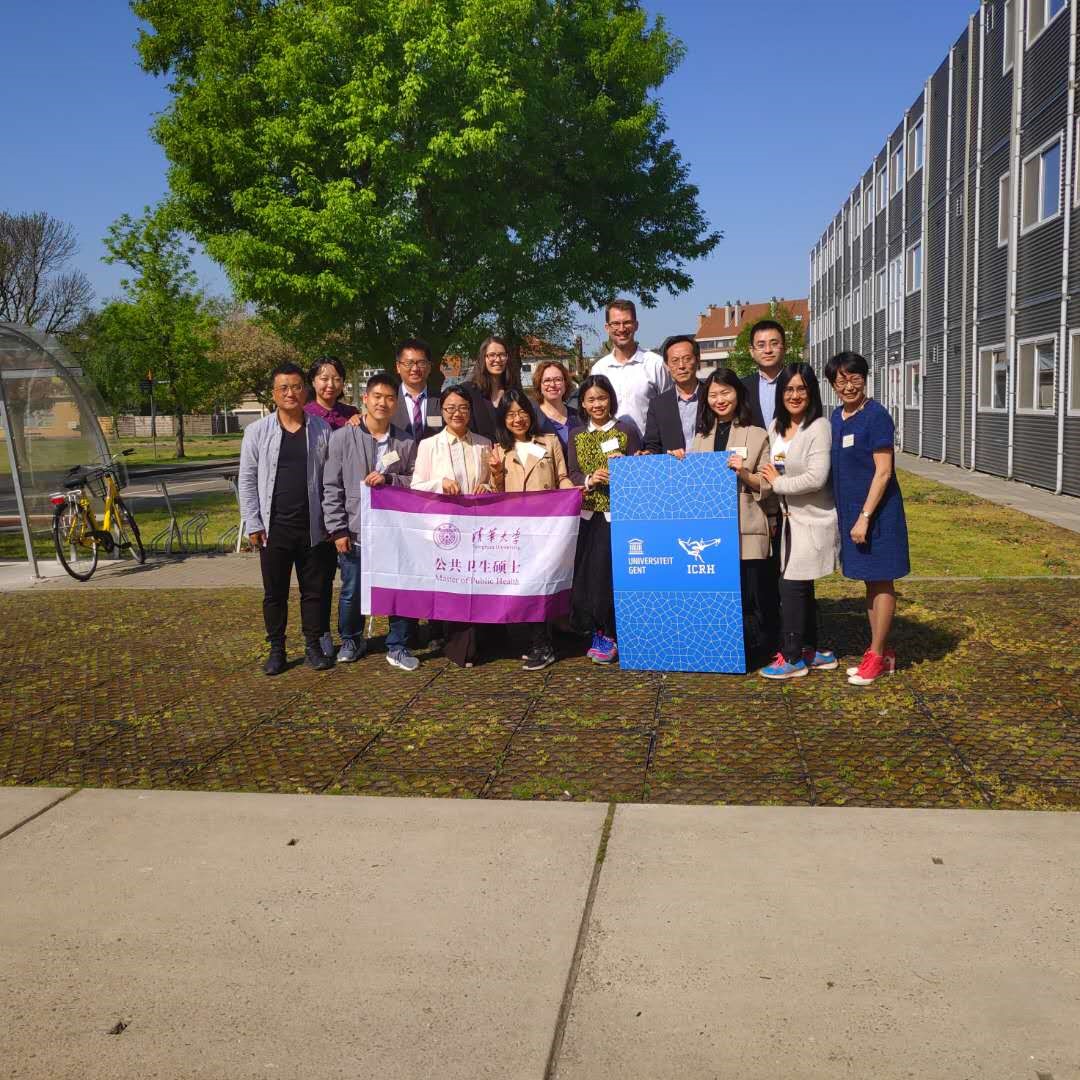 Ghent University and the Tsinghua University organized for the third time a fellowship course for Chinese Master of Public Health students and professionals around health care in Belgium and Europe. Ghent University and the Tsinghua University organized for the third time a fellowship course for Chinese Master of Public Health students and professionals around health care in Belgium and Europe.
A group of Chinese students, government officials, public services representatives, senior administrative staff and senior hospital managers came to visit Ghent and Brussels to get a better sense of the Belgian health care system. It was the third time that this course took place in the framework of the three year old partnership for collaboration between Ghent University and the Tsingua University.
During the week the participants follow specific courses by guest speakers and conduct field visits. This year topics included sexual and reproductive health, aging population care, health care policies, intercultural communication and patients’ rights among others. The group visited the ‘Leie Home’ nursing home, the rehabilitation centre of Ghent University, the Ghent University Hospital (UZ) reception a surgical day clinic and a pediatric clinic.
To strengthen the policy link, the participants also visited the European Parliament and the Mission of the People’s Republic of China to the European Commission.
|
| PROJECTS |
New chat service for Sexual Assault Care Centers, ICRH-Belgium
 On the 10th of April ICRHB launched on a new chat service as an outreach tool to the victims with the aim to facilitate the access to the SACCs in Belgium. The team of Prof. Ines Keygnaert has been working on the development of Sexual Assault Care Centers (SACCs) in Belgium since 2015. By the end of October 2017, three sexual assault care centers were set up in the University hospitals of Ghent, Brussels and Liège. Belgian Sexual Assault Care Centers (SACCs) provide forensic, medical and psychological care to victims of acute sexual violence. Currently, victims are oriented by the police or self-report to the SACCs by phone, mail or in person. With the aim to improve the access to the SACCs, a pilot study is being conducted on a chat service that will bring victims of SV in touch with a SACC worker. A feasibility study showed this may especially be necessary for hard to reach groups such as adolescents and men, who face more barriers to seek help after SV. On the 10th of April ICRHB launched on a new chat service as an outreach tool to the victims with the aim to facilitate the access to the SACCs in Belgium. The team of Prof. Ines Keygnaert has been working on the development of Sexual Assault Care Centers (SACCs) in Belgium since 2015. By the end of October 2017, three sexual assault care centers were set up in the University hospitals of Ghent, Brussels and Liège. Belgian Sexual Assault Care Centers (SACCs) provide forensic, medical and psychological care to victims of acute sexual violence. Currently, victims are oriented by the police or self-report to the SACCs by phone, mail or in person. With the aim to improve the access to the SACCs, a pilot study is being conducted on a chat service that will bring victims of SV in touch with a SACC worker. A feasibility study showed this may especially be necessary for hard to reach groups such as adolescents and men, who face more barriers to seek help after SV.
Via a new chat service victims can tell their story anonymously and an attempt can be made to remove barriers to seek further help. A process evaluation will be conducted, aiming to describe the characteristics of its users and the services offered. This pilot study aims to inform the national upscale and potential international implementation of chat services for sexual assault care centers. |
| PEOPLE |
Prof. Marleen Temmerman appointed Chair of the Hospital Management Board of Pumwani Maternity Hospital
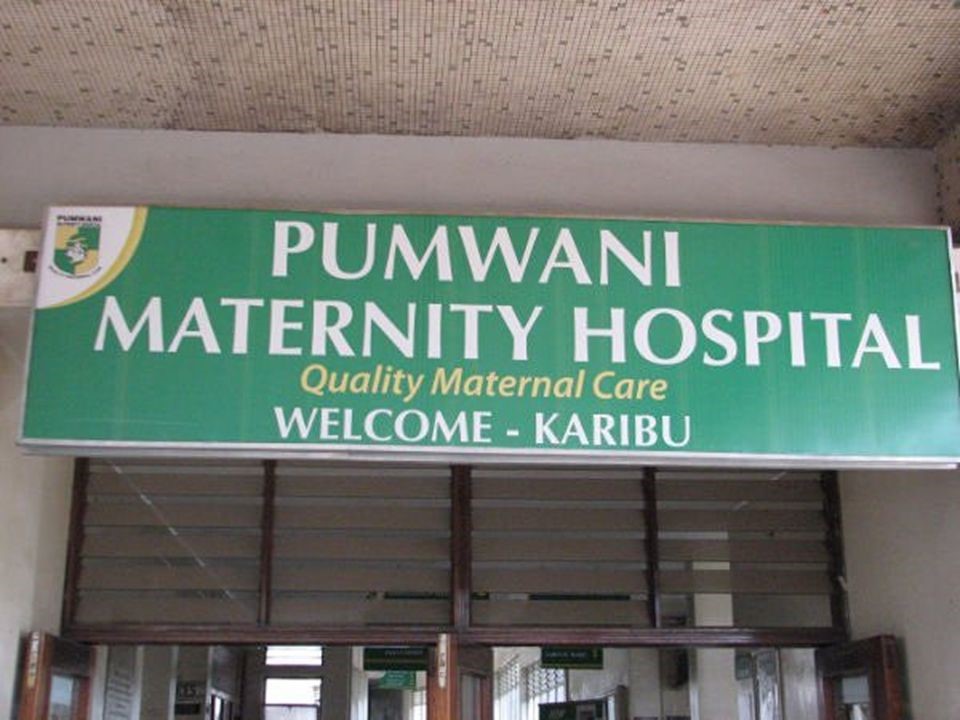 In March 2019, Prof Marleen Temmerman was appointed Chair of the Hospital Management Board of Pumwani Maternity Hospital, the largest public maternity in East Africa, with an average of 80 deliveries a day, where she worked between 1987 and 1992. She is happy and proud to be invited by the Nairobi County Government to work with them and to manage this great maternity hospital. In March 2019, Prof Marleen Temmerman was appointed Chair of the Hospital Management Board of Pumwani Maternity Hospital, the largest public maternity in East Africa, with an average of 80 deliveries a day, where she worked between 1987 and 1992. She is happy and proud to be invited by the Nairobi County Government to work with them and to manage this great maternity hospital. |
Dr. Katrina Perehudoff gives keynote on high medicines prices at Rotary Conference in Pennsylvania, USA
Rot ary District 7280 Governor Mr. Scott Bayline invited Dr. Perehudoff to address his District Conference, this year in Erie, Pennsylvania from May 17-19, 2019. In her keynote, Dr. Perehudoff spoke of the growing challenge of high medicines prices and their potential impact on the future success of Rotary's health projects. "Saving mothers and children, and fighting disease are two of Rotary's six areas of focus," explained Dr. Perehudoff, "But what good are the health centres Rotary clubs build, and the doctors and nurses they train if they can't afford to have medicines on shelves and in patients' hands?". In her interactive breakout sessions the audience raised the core issues: What is a fair price for new medicines? Why don't we know how much medicines research and development costs? How do we know when public payers/governments are getting a good deal on the medicines they buy if the negotiations aren't transparent? How much of these high prices go towards marketing and advertising medicines? Dr. Perehudoff "Clearly this issue strikes a chord with an American public, some of whom are paying exorbitant drug prices at home and also face this challenge in their Rotary service projects in low- and middle-income countries." ary District 7280 Governor Mr. Scott Bayline invited Dr. Perehudoff to address his District Conference, this year in Erie, Pennsylvania from May 17-19, 2019. In her keynote, Dr. Perehudoff spoke of the growing challenge of high medicines prices and their potential impact on the future success of Rotary's health projects. "Saving mothers and children, and fighting disease are two of Rotary's six areas of focus," explained Dr. Perehudoff, "But what good are the health centres Rotary clubs build, and the doctors and nurses they train if they can't afford to have medicines on shelves and in patients' hands?". In her interactive breakout sessions the audience raised the core issues: What is a fair price for new medicines? Why don't we know how much medicines research and development costs? How do we know when public payers/governments are getting a good deal on the medicines they buy if the negotiations aren't transparent? How much of these high prices go towards marketing and advertising medicines? Dr. Perehudoff "Clearly this issue strikes a chord with an American public, some of whom are paying exorbitant drug prices at home and also face this challenge in their Rotary service projects in low- and middle-income countries."
At a global level, a pivotal policy window immediately followed the District Conference: the 72nd World Health Assembly debated a draft Resolution for greater transparency of pharmaceutical markets. Read Dr. Perehudoff's blog about the World Health Assembly to learn more: https://www.hhrjournal.org/2019/05/drug-price-transparency-calls-move-from-south-africa-to-wha/?fbclid=IwAR0-YkO_wSfc8l13d4I1obZ1BxM3dlQgVHWqyo856Q0C63iVHSDL2GOWHU8 |
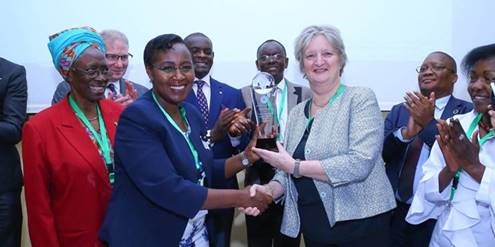 UNESCO Chair UNESCO Chair
On April 1st Prof Marleen Temmerman was nominated as UNESCO Chairholder of the UNESCO Chair entitled “Youth Leadership in Science, Health, Gender and Education: Equitable Investment in the next generation of young leaders in East-Africa”. Partners include ICRH Kenya.
|
PUBLICATIONS |
Verelst F, Kessels R, Delva W, Beutels P, Willem L. Drivers of Vaccine Decision-Making in South Africa: a Discrete Choice Experiment. Vaccine;37(15):2079-2089. doi: https://doi.org/10.1016/j.vaccine.2019.02.056 |
|
|
|
|
 ICRH Global Newsletter
ICRH Global Newsletter  During the month of May the ICRH-Belgium team participates in the Pink March, which includes a 30 minutes extra walk every day, because walking can contribute to the prevention of cancer. “A healthy lifestyle and especially physical exercise make it possible to avoid one cancer in three” Pink Ribbon emphasized. It is as simple as getting of the bus early, using the stairs, walking your dog more often…. A small change in your lifestyle but a big step in the right direction for your health!
During the month of May the ICRH-Belgium team participates in the Pink March, which includes a 30 minutes extra walk every day, because walking can contribute to the prevention of cancer. “A healthy lifestyle and especially physical exercise make it possible to avoid one cancer in three” Pink Ribbon emphasized. It is as simple as getting of the bus early, using the stairs, walking your dog more often…. A small change in your lifestyle but a big step in the right direction for your health!  The Mombasa research group journal club is held once a month, and was initiated jointly by ICRH, Aga Khan University Mombasa Research Office, and University of Washington, Mombasa. Journal clubs aim to improve research capacity among junior investigators and promote collaboration among the institutions. This month the journal club was hosted by ICRH-Kenya.
The Mombasa research group journal club is held once a month, and was initiated jointly by ICRH, Aga Khan University Mombasa Research Office, and University of Washington, Mombasa. Journal clubs aim to improve research capacity among junior investigators and promote collaboration among the institutions. This month the journal club was hosted by ICRH-Kenya. The objective of this event was to evaluate the performance of the national family planning programme in 2018, and consolidate strategies for accelerating progress towards the goal of 34% contraception prevalence by 2020. Issues discussed included expanding provision of Sayana Press in Mozambique, increasing uptake of LARCs (longer-acting reversible contraceptives), introduction of generic contraceptives, and maintaining family planning services in emergency situations such as the recent cyclone in Sofala province. Challenges identified included continued predominance of shorter-acting methods; limited integration of family planning in post-partum and post-abortion services; and supply chain issues.
The objective of this event was to evaluate the performance of the national family planning programme in 2018, and consolidate strategies for accelerating progress towards the goal of 34% contraception prevalence by 2020. Issues discussed included expanding provision of Sayana Press in Mozambique, increasing uptake of LARCs (longer-acting reversible contraceptives), introduction of generic contraceptives, and maintaining family planning services in emergency situations such as the recent cyclone in Sofala province. Challenges identified included continued predominance of shorter-acting methods; limited integration of family planning in post-partum and post-abortion services; and supply chain issues. Ghent University and the Tsinghua University organized for the third time a fellowship course for Chinese Master of Public Health students and professionals around health care in Belgium and Europe.
Ghent University and the Tsinghua University organized for the third time a fellowship course for Chinese Master of Public Health students and professionals around health care in Belgium and Europe. UNESCO Chair
UNESCO Chair

 We should not accept reversal of the gains we made” said HE Margaret Kenyatta at the opening of the 72nd World Health Assembly in Geneva this month, and as an advocate for women’s health in Kenya, she talks from the heart, and with a lot of wisdom. Indeed, a lot of gains have been made in the area of women and girl’s health and rights over the last 2 decades. Later this year in Nairobi, the world celebrates the 25th anniversary of the 1994 ICPD Cairo Conference, the birth of the ‘Reproductive Rights’ concept, and there is reason to celebrate in most parts of the world. However, there is also more and more pushback. Think of the abortion ban in Alabama, or the removal of 'sexual health' references from the UN resolution on sexual violence. Extreme right-wing political parties seem to be convincing more and more voters, also in Belgium, that could potentially change national positions on sexual and reproductive health and rights. We should not accept this reversal, as the first lady said, and keep fighting for women’s rights all
We should not accept reversal of the gains we made” said HE Margaret Kenyatta at the opening of the 72nd World Health Assembly in Geneva this month, and as an advocate for women’s health in Kenya, she talks from the heart, and with a lot of wisdom. Indeed, a lot of gains have been made in the area of women and girl’s health and rights over the last 2 decades. Later this year in Nairobi, the world celebrates the 25th anniversary of the 1994 ICPD Cairo Conference, the birth of the ‘Reproductive Rights’ concept, and there is reason to celebrate in most parts of the world. However, there is also more and more pushback. Think of the abortion ban in Alabama, or the removal of 'sexual health' references from the UN resolution on sexual violence. Extreme right-wing political parties seem to be convincing more and more voters, also in Belgium, that could potentially change national positions on sexual and reproductive health and rights. We should not accept this reversal, as the first lady said, and keep fighting for women’s rights all ICRH-Kenya clinical Officer Dorothy Mbeta was invited to speak as a panelist in a session on oral pre-exposure prophylaxis (PrEP). The theme of the conference was: “leveraging the HIV response to accelerate impact for Universal Health Coverage”. Dorothy works as a clinician at Likoni Drop-in-Centre, one of seven ICRHK-supported centers that provides HIV services to female sex workers and men who have sex with men. Dorothy is an outstanding clinician and provided insights on how she has maintained PrEP clients on near-perfect continuation rates.
ICRH-Kenya clinical Officer Dorothy Mbeta was invited to speak as a panelist in a session on oral pre-exposure prophylaxis (PrEP). The theme of the conference was: “leveraging the HIV response to accelerate impact for Universal Health Coverage”. Dorothy works as a clinician at Likoni Drop-in-Centre, one of seven ICRHK-supported centers that provides HIV services to female sex workers and men who have sex with men. Dorothy is an outstanding clinician and provided insights on how she has maintained PrEP clients on near-perfect continuation rates. e United Nations Foundation hosted a conference on the impact of weak energy supplies for delivering good health care services and how clean energy could help in creating stronger and more resilient health systems in Africa.
e United Nations Foundation hosted a conference on the impact of weak energy supplies for delivering good health care services and how clean energy could help in creating stronger and more resilient health systems in Africa. On the 10th of April ICRHB launched on a new chat service as an outreach tool to the victims with the aim to facilitate the access to the SACCs in Belgium. The team of Prof. Ines Keygnaert has been working on the development of Sexual Assault Care Centers (SACCs) in Belgium since 2015. By the end of October 2017, three sexual assault care centers were set up in the University hospitals of Ghent, Brussels and Liège. Belgian Sexual Assault Care Centers (SACCs) provide forensic, medical and psychological care to victims of acute sexual violence. Currently, victims are oriented by the police or self-report to the SACCs by phone, mail or in person. With the aim to improve the access to the SACCs, a pilot study is being conducted on a chat service that will bring victims of SV in touch with a SACC worker. A feasibility study showed this may especially be necessary for hard to reach groups such as adolescents and men, who face more barriers to seek help after SV.
On the 10th of April ICRHB launched on a new chat service as an outreach tool to the victims with the aim to facilitate the access to the SACCs in Belgium. The team of Prof. Ines Keygnaert has been working on the development of Sexual Assault Care Centers (SACCs) in Belgium since 2015. By the end of October 2017, three sexual assault care centers were set up in the University hospitals of Ghent, Brussels and Liège. Belgian Sexual Assault Care Centers (SACCs) provide forensic, medical and psychological care to victims of acute sexual violence. Currently, victims are oriented by the police or self-report to the SACCs by phone, mail or in person. With the aim to improve the access to the SACCs, a pilot study is being conducted on a chat service that will bring victims of SV in touch with a SACC worker. A feasibility study showed this may especially be necessary for hard to reach groups such as adolescents and men, who face more barriers to seek help after SV. In March 2019, Prof Marleen Temmerman was appointed Chair of the Hospital Management Board of Pumwani Maternity Hospital, the largest public maternity in East Africa, with an average of 80 deliveries a day, where she worked between 1987 and 1992. She is happy and proud to be invited by the Nairobi County Government to work with them and to manage this great maternity hospital.
In March 2019, Prof Marleen Temmerman was appointed Chair of the Hospital Management Board of Pumwani Maternity Hospital, the largest public maternity in East Africa, with an average of 80 deliveries a day, where she worked between 1987 and 1992. She is happy and proud to be invited by the Nairobi County Government to work with them and to manage this great maternity hospital. ary District 7280
ary District 7280